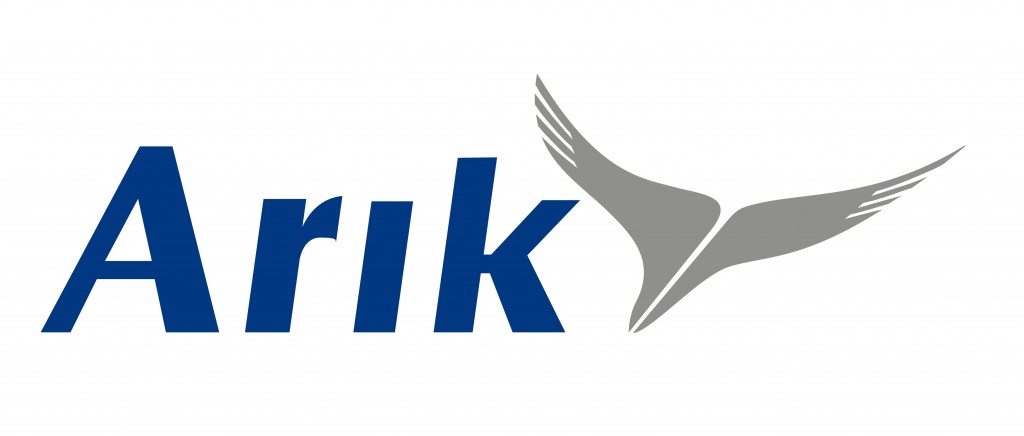News
TETFund Records over N60bn Revenue Decline

The Tertiary Education Trust Fund (TETFund) has recorded over N60 billion fall in revenue. The Executive Secretary of TETFund, Mr. Sonny Echono, disclosed this yesterday in Abuja when members of the House of Representatives Committee on Tertiary Education and Services, led by Hon. Aminu Suleiman, paid an oversight visit to the agency.

Echono, who spoke on TETFund’s operations and the state of finances, especially from 2017 to date said that last year’s collection dropped to N189 billion.
He said: “We witnessed a steady rise in collections under the education tax but unfortunately, last year, for the 2021 there was a sharp drop and that left us in a very dare position.
“For example, as I said, from N154 billion in 2017, the tax collection rose steadily to N257 billion over the years.
“So by 2020, we’ve got N257 billion, but unfortunately, last year’s collection, which is what we are using to operate this year, dropped sharply to N189 billion.
“So over N60 billion drop revenue or resources available to TETfund and the way we operate, 2021 collections were used for 2022 operations,” the TETfund boss said.
He, however, noted that given Mr. President’s commitment on increased funding for education, and with the usual support of the National Assembly, the tax rate last year was increased from 2 to 2.5%.
“But the target is that before the end of this administration, it will increase to three per cents, which is a commitment that the President has already given in writing to the Global Partnership for Education.”
Echono further commended the level of support and cooperation the Fund has enjoyed from the committee and the National Assembly, while seeking its support in effecting the amendment of the fund.
He said: “This is a major area that will be seeking the support of the National Assembly in terms of legislation.
“The other aspect is the fact that in contravention of this oversight, we also want to open our activities to independent assessment and evaluation on our behalf.
“So we have designed a monitoring and evaluation that will be involving key stakeholders, like the National Assembly, even the staff unions in our tertiary institutions, to join us do independently look at some of the things that we’re doing.”
Responding, Suleiman assured the fund of its continued support and cooperation to ensure that the system continue to work stronger.
He said: “We congratulate you and we assure you of our support, without prejudice to the fact that sometimes we can agree to disagree.
“And I’m sure you are familiar we have had quite several even when you are the permanent secretary to disagree entirely with the ministry, but not predicated on any personal motive but to share with you where I’m at with them differently from the way things are being done, and in most cases, we actually arrive at the surface.
“I have no doubt that our relationship will continue here. The essence is for us like I said to better the system.”
He said that the visit was a legislative requirement on any legislatures through various committees that a minimum of an oversight must be conducted and the periodic report submitted to the house through the culinary bureaus to discuss matters, particularly challenges that agencies and monitors of those agencies are facing.
He also directed TETFund to mandate state institutions benefiting from its interventions to submit reports of their operations within three weeks.
Suleiman said: “For about four or five months we have written to the fund asking them to invite the attention of state institutions who are benefiting from the TETFund operations to send to the committee their statement of operations as thy relates to what they have been getting from to the TETFund.
“We do not know whether it is TETfund that has not communicated to the institutions or they have not followed up on all or the institutions felt that they state institution and they are not responsible to us.
“If they didn’t they should stop funding them because they cannot collect public fund and refused to account for it, impossible, they have to account.
“If they refuse to account because they are state institutions then they should go back to the state governors and get funding which is even the right thing that is supposed to be done.
“TETFUND is supposed to be assisting but we have a situation where every governor now set up an institution and abandon it to TETfund for funding except salaries.
“I use this opportunity to advise that bodies responsible for these should ensure that within three weeks all the state’s institution complied if they did not the committee will decide whether they are entitled to continue to benefit from succession that is under the control of TETfund,” he added.
News
UK Minister for Africa Visits Nigeria to Deepen Strategic Partnership

The United Kingdom’s Minister for Africa, Lord Collins of Highbury, has concluded a three-day visit to Nigeria, aimed at reinforcing the UK-Nigeria Strategic Partnership.

He reaffirmed the UK Government’s strong commitment to deepening trade and investment ties between the United Kingdom and Nigeria.
During his visit, Lord Collins met with senior Nigerian government officials, business leaders, civil society representatives and United Nations agencies.
These engagements underlined the UK’s long-term drive to support Nigeria’s prosperity and stability while deepening bilateral cooperation for transformative growth across our shared priorities.
A key highlight of the visit was Lord Collin’s bilateral meeting with Nigeria’s Minister of Foreign Affairs, Yusuf Tuggar, in which both parties reaffirmed their unwavering commitment to strengthening economic ties and promoting regional security. The Minister was joined by the UK’s Trade Envoy to Nigeria, Florence Eshalomi MP.
Lord Collins also met with Deputy Speaker of the House of Representatives, Hon. Benjamin Kalu, and discussions focused on opportunities to strengthen engagement between UK’s parliament and Nigeria’s National Assembly and the importance of furthering women’s participation in politics.
Speaking on his visit, the UK Government’s Minister for Africa, Lord Collins said: “Nigeria and the UK share a rich, ambitious relationship: one that is deeply rooted in respect.
“Our Strategic Partnership is at the forefront of this, and my visit has focused on how our countries can continue deepening our cooperation on key issues such as trade and investment to drive economic growth and deliver prosperity for us all.”
The Minister held discussions with United Nations representatives on the ongoing reform of the UN system, its implications for Nigeria and how the reform can effectively support those most in need, particularly in Northeast Nigeria, whilst also contributing to global humanitarian efforts.
Lord Collins also met with civil society leaders to discuss electoral integrity and governance reforms, reinforcing the UK’s commitment to democratic values and community empowerment.
He later visited Nigeria’s Anti-Kidnap Fusion Cell: a key security initiative supported by UK expertise through the National Crime Agency and the Integrated Security Fund, which plays a vital role in enhancing local safety and combating serious crime.
Also commenting on the visit, the British High Commissioner to Nigeria, Dr Richard Montgomery, said: “Driving growth is central to the UK’s foreign and development policy. Lord Collins’ visit to Nigeria underscores the UK’s unwavering commitment to deepening our shared prosperity through expanded trade and investment. We are proud to stand alongside Nigeria as it forges a resilient and dynamic economy.”
This visit underscores the UK’s enduring partnership with Nigeria – built on mutual respect, shared goals, and a vision for a prosperous future for both nations.
News
PalmPay Launches CSR Initiatives to Empower Women, Foster Financial Literacy in Northern Nigeria

In a strategic move to expand financial inclusion in Nigeria, leading mobile banking platform, PalmPay has launched a series of CSR programs across Kano and Kaduna. The CSR initiative named “Passing the Baton” represents the brand’s commitment to passing on knowledge and providing the resources individuals and businesses need to achieve financial independence and drive economic empowerment.

This initiative is a bold move by PalmPay to bridge the opportunity gap in the North by providing financial literacy training and micro-business branding support to 5,000 women-owned businesses in Kano and Kaduna. This strategic initiative reaffirms PalmPay’s commitment to inclusive development and economic empowerment, particularly in underserved regions.
“At PalmPay, we believe that real financial inclusion must be far reaching and cover the grassroots,” said Chika Nwosu, Managing Director of PalmPay. “Our new CSR program is focused on supporting gender equity by equipping women with the knowledge, tools, and visibility they need to thrive as entrepreneurs in their communities.”
Through this initiative, beneficiaries will receive free health insurance, hands-on training workshops, enhanced store branding to boost visibility, and branded merchandise to strengthen their business presence.
The initiative is part of PalmPay’s broader strategy to extend its innovative solutions, expand its footprint in Northern Nigeria, while building sustainable partnerships with local stakeholders for long-term impact.
In a show of support, His Royal Highness, the Emir of Kano, Dr. Muhammadu Sanusi II, has endorsed the initiative, calling on other stakeholders to join forces with PalmPay in ensuring the North benefits fully from the growing digital economy. PalmPay has received commendation from community stakeholders, as the initiative aims to serve as a model for similar projects across other northern states.
As PalmPay continues to scale across Nigeria, the company remains committed to bridging the financial inclusion gap and empowering underserved groups, particularly women and youth, through its innovative solutions and impact initiatives.
News
EFCC Witness Admits Writing Off Arik Air’s $2.3M Debt Amid N76Bn Fraud Trial



 Telecom2 days ago
Telecom2 days agoGlo, Huawei, Communications Ministry Bring Digital Services to Abuja Village

 E-Financial2 days ago
E-Financial2 days agoSEC Alerts Public on Silverkuun, Trending Dubious Investment Schemes

 General News2 days ago
General News2 days agoTripoint Travels Hosts Pre-GEC Brunch for Nigerian Delegates Ahead of Global Entrepreneurship Congress 2025

 E-Financial2 days ago
E-Financial2 days agoAfrica Cross-border Payments Set to Hit $1 trillion by 2035

 News2 days ago
News2 days agoPalmPay Launches CSR Initiatives to Empower Women, Foster Financial Literacy in Northern Nigeria

 Telecom2 days ago
Telecom2 days agoExperts @ ABoICT 2025 Warn of Digital Disaster Risks in Nigeria Without AI Governance

 E-Financial2 days ago
E-Financial2 days agoSANEF, CIBN Partner to Expand Agency Banking Certification

 Broadcasting2 days ago
Broadcasting2 days agoDStv Makes History: Inducted into Brand Africa Hall of Fame as Africa’s Most Admired Media Brand




























